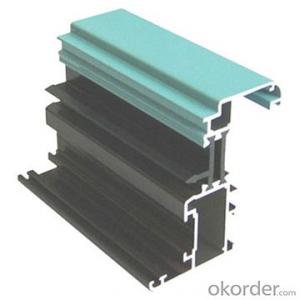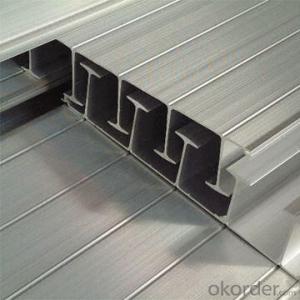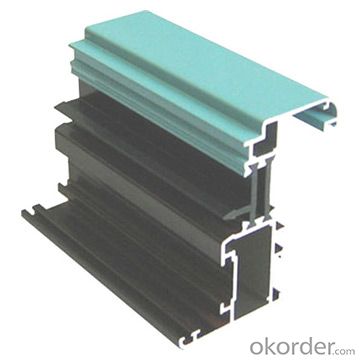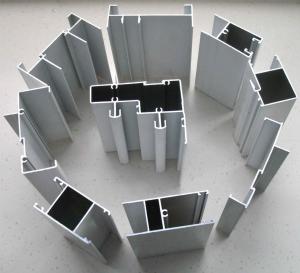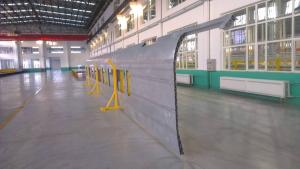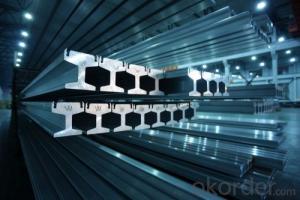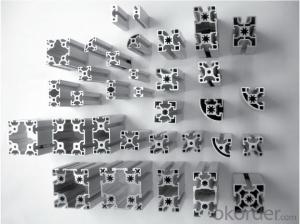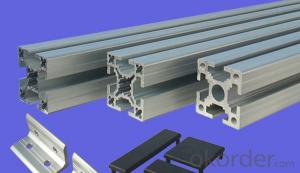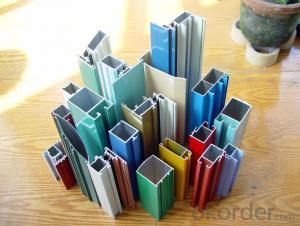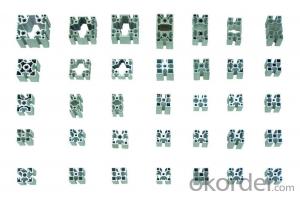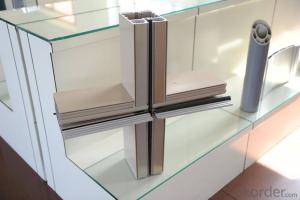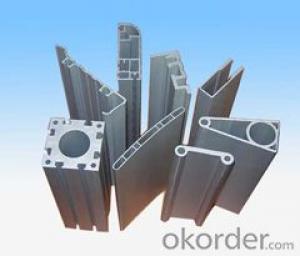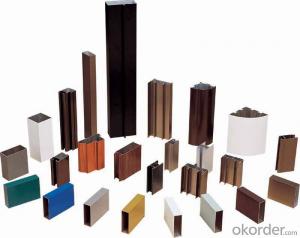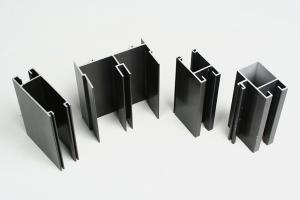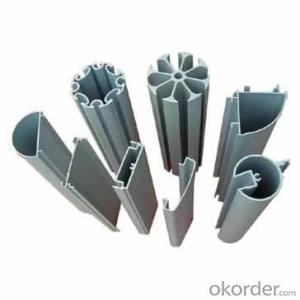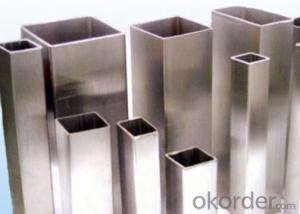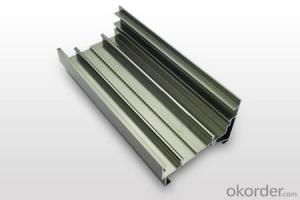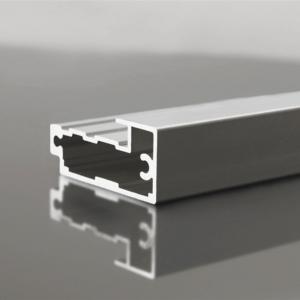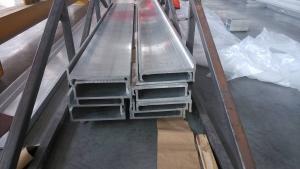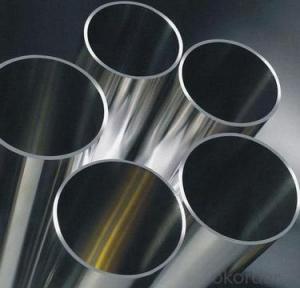Aluminum Profiles for LED Extrusion for Window and Door
- Loading Port:
- China Main Port
- Payment Terms:
- TT OR LC
- Min Order Qty:
- -
- Supply Capability:
- -
OKorder Service Pledge
OKorder Financial Service
You Might Also Like
Aluminium is a relatively soft, durable, lightweight, ductileand malleablemetalwith appearance ranging from silvery to dull gray, depending on the surfaceroughness. It is nonmagnetic and does not easily ignite. A fresh film ofaluminium serves as a good reflector (approximately 92%) of visible lightand an excellent reflector (as much as 98%) of medium and far infraredradiation. The yield strength of pure aluminium is 7–11 MPa,while aluminium alloys have yield strengths ranging from200 MPa to 600 MPa. Aluminium has about one-third the densityand stiffness of steel. It is easily machined,cast, drawn and extruded.
Features:
Material | Alloy 6063,6061,6005or according to customer’s choice |
Temper | T3, T4, T5, T6 |
Surface | Anodize, electrophoresis, powder coating, PVDF coating, wood grain painting, matted, etc. |
Length | Coating 6.5 meters, Anodizing 6.5 meters, Mill finish 5 meters |
Application | Industrial, electrical equipment(TV set, air conditioner, refrigerator, computer), decoration,construction, transportation |
Custom Made | We can package following with customer's request. |
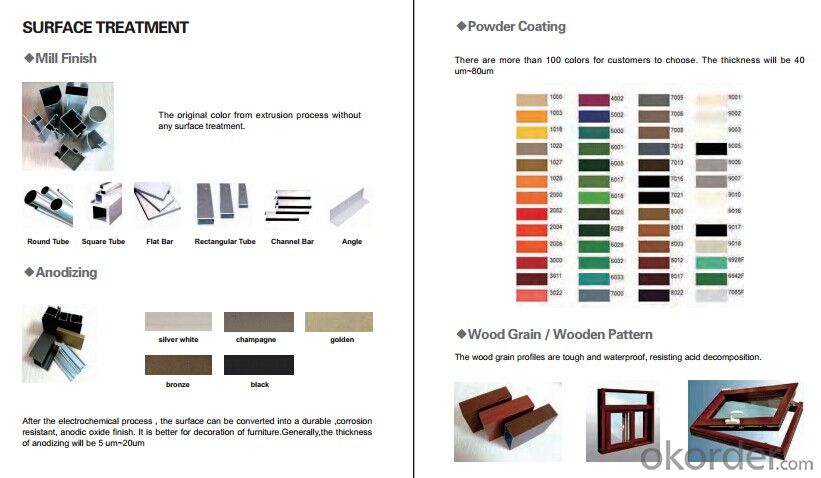
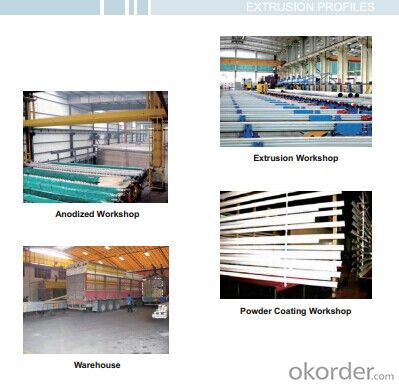
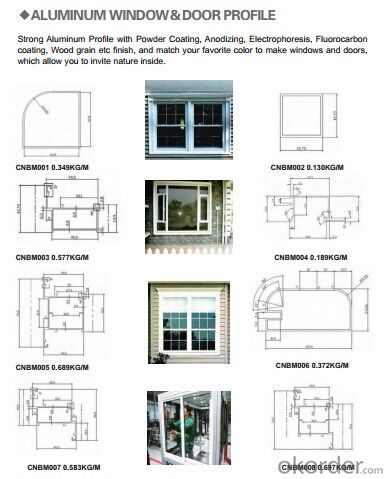
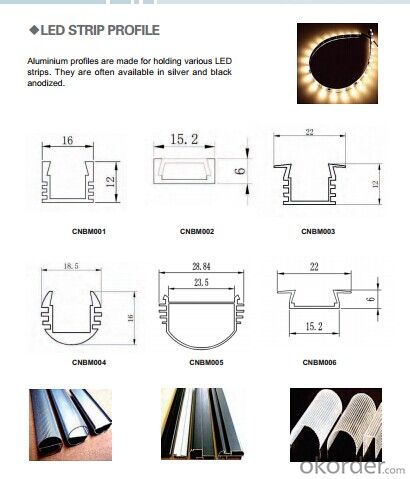
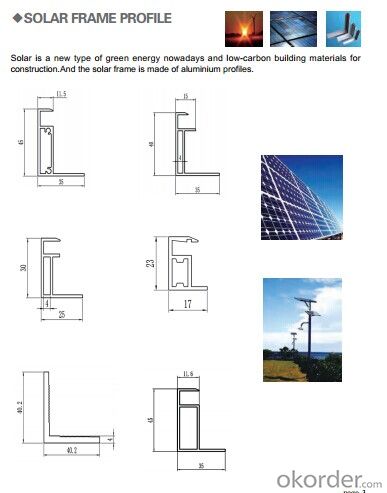
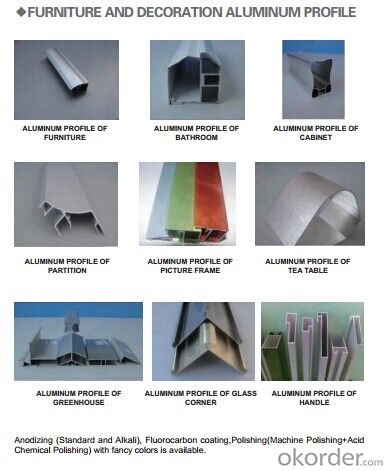
- Q: What are the vibration damping properties of aluminum profiles?
- Aluminum profiles exhibit good vibration damping properties due to their inherent material properties, such as high stiffness and low density. These properties enable the profiles to effectively absorb and dissipate vibrations, reducing their transmission through the structure. Additionally, aluminum profiles can be further enhanced with damping materials or techniques to improve their vibration damping capabilities.
- Q: This question asks about the strength and suitability of aluminum profiles for outdoor applications.
- <p>Yes, aluminum profiles are strong enough for exterior use. They are lightweight, durable, and resistant to corrosion, making them ideal for outdoor applications. Aluminum profiles can withstand various weather conditions and maintain their strength over time. They are also low-maintenance, as they do not rust or rot, and can be easily cleaned. Additionally, aluminum profiles can be anodized or powder-coated for enhanced durability and resistance to UV rays, further ensuring their suitability for exterior use.</p>
- Q: In aluminum processing, countersunk holes and via holes what difference?
- Through holes in the positioning hole, the screw hole, and the screw cap is countersunk hole sink don't come out.AskI can't understand you..Chasing the answerThe countersunk head is where the screw cap sinks and the through-hole is threaded to avoid the hole
- Q: Aluminum bending die, iron must be used, what iron should be used, specifically what brand?
- General production of aluminum alloy is H13, die steel, if stretched or squeezed, most are carbide. I work in the production of aluminum profiles
- Q: How do you attach accessories or components to aluminum profiles?
- Accessories or components can be attached to aluminum profiles using various methods such as screws, bolts, brackets, clamps, connectors, or adhesive tapes. These attachment methods ensure a secure and sturdy connection between the accessories and the aluminum profiles, allowing for easy assembly and disassembly when needed.
- Q: What are the fire-resistant properties of aluminum profiles?
- Aluminum profiles possess excellent fire-resistant properties due to their high melting point of about 660 degrees Celsius (1220 degrees Fahrenheit). Additionally, aluminum forms a protective oxide layer when exposed to heat, which further enhances its resistance to fire. This oxide layer acts as a barrier, preventing oxygen from reaching the aluminum surface and inhibiting the combustion process. As a result, aluminum profiles are widely used in various applications where fire safety is crucial, such as building construction and transportation industries.
- Q: This question asks for a list of various aluminum profiles that are specifically designed or used for roofing systems in regions with cold climates.
- <p>In cold climates, aluminum profiles for roofing systems are selected for their durability, strength, and resistance to harsh weather conditions. Common types include: 1. Standing Seam Profiles: These are popular for their weather-tightness and resistance to snow and ice. 2. Trapezoidal Profiles: Known for their strength and ability to handle heavy snow loads. 3. Box Rib Profiles: These provide excellent structural integrity and are suitable for areas with high wind uplift. 4. Snap-Lock Profiles: Easy to install and offer good resistance to snow and ice. 5. Corrugated Profiles: Provide a traditional look while being cost-effective and offering good drainage. 6. Panel Rib Profiles: These are designed for long spans and can withstand heavy snowfall. Each profile has specific applications and advantages, and the choice depends on the specific roofing requirements and local climate conditions.</p>
- Q: Can aluminum profiles be used for electrical bus ducts?
- Yes, aluminum profiles can be used for electrical bus ducts. Aluminum is a suitable material for bus ducts as it is lightweight, corrosion-resistant, and has good electrical conductivity. Additionally, aluminum profiles can be easily fabricated and installed, making them a popular choice for electrical bus ducts in various industries.
- Q: How do you prevent galling or seizing with aluminum profiles?
- To avoid galling or seizing in aluminum profiles, several steps can be taken: 1. Apply lubricant: Use a suitable lubricant on the contact surfaces of the profiles. This reduces friction and heat, preventing galling or seizing. Be sure to choose a lubricant specifically made for aluminum to avoid any negative reactions. 2. Utilize surface treatments: Implement anodizing or protective coatings on the profiles. These treatments create a barrier between the profiles, minimizing direct metal-to-metal contact and decreasing the likelihood of galling or seizing. 3. Ensure proper design and materials: Make sure the profiles and their mating components have sufficient clearance and a proper fit. Avoid tight tolerances that can cause excessive contact pressure, which increases the risk of galling. Additionally, select materials with compatible hardness and avoid using dissimilar metals that may lead to galvanic corrosion. 4. Keep things clean: Maintain cleanliness by regularly cleaning the profiles and their mating surfaces, removing any dirt, debris, or contaminants. Foreign particles can increase friction and contribute to galling or seizing. 5. Implement regular maintenance: Establish a preventive maintenance program that includes periodic inspection, cleaning, and lubrication of the profiles. This helps identify any issues early on and ensures smooth operation over time. By following these preventive measures, the risk of galling or seizing in aluminum profiles can be minimized, resulting in longer-lasting performance.
- Q: This question asks for an overview of the various types of aluminum profiles that are frequently utilized in the construction of commercial buildings.
- <p>Commonly used aluminum profiles in commercial buildings include: 1. Extruded aluminum profiles, which are versatile and used for window frames, door frames, and curtain walls. 2. Structural aluminum profiles, used for load-bearing structures and support systems. 3. Architectural aluminum profiles, designed for aesthetic and functional purposes like facades and decorative elements. 4. Industrial aluminum profiles, used in manufacturing and assembly lines. 5. Thermal break aluminum profiles, which reduce heat transfer and are used in energy-efficient buildings. 6. Anodized aluminum profiles, offering enhanced durability and corrosion resistance. These profiles are chosen based on specific project requirements, such as structural needs, design aesthetics, and environmental considerations.</p>
Send your message to us
Aluminum Profiles for LED Extrusion for Window and Door
- Loading Port:
- China Main Port
- Payment Terms:
- TT OR LC
- Min Order Qty:
- -
- Supply Capability:
- -
OKorder Service Pledge
OKorder Financial Service
Similar products
Hot products
Hot Searches
Related keywords
